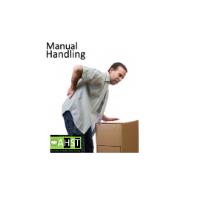 Add My Company
Add My Company
Sign In
Lone Worker's Safety
04-08-2016

Employers are responsible for the health, safety and welfare at work of all of their workers. They also have responsibility for the health and safety of any contractors or self-employed people doing work for them; this includes any lone workers, and the law requires employers to think about and deal with any health and safety risks before people are allowed to work alone.
Things you could consider to help ensure lone workers are not put at risk include:
• assessing areas of risk including violence, manual handling, the medical suitability of the individual to work alone and whether the workplace itself presents a risk to them
• requirements for training, levels of experience and how best to monitor and supervise them
• making sure you know what is happening, including having systems in place to keep in touch with them
Our Manual Handling Course will provide your employee with a good basic knowledge of safe manual handling. Please click on the picture or HERE for further information
Who are lone workers and what jobs do they do?
Lone workers are those who work by themselves without close or direct supervision, for example:
• A person working alone in a small workshop, petrol station, kiosk or shop
• People working on their own outside normal hours, eg cleaners and security, maintenance or repair staff
• As mobile workers working away from their fixed base
• Workers involved in construction, maintenance and repair, plant installation and cleaning work
• Agricultural and forestry workers
• Service workers, including postal staff, social and medical workers, engineers, estate agents, and sales or service representatives visiting domestic and commercial premises
How must employers control the risks?
Employers have a duty to assess risks to lone workers and take steps to avoid or control risks where necessary. They need to ensure that they taking steps to ensure risks are removed where possible, or putting in place control measures, eg carefully selecting work equipment to ensure the worker is able to perform the required tasks in safety; or being aware that some tasks may be too difficult or dangerous to be carried out by an unaccompanied worker.
Why is training particularly important for lone workers?
Training is particularly important where there is limited supervision to control, guide and help in uncertain situations.
Training may also be crucial in enabling people to cope in unexpected circumstances and with potential exposure to violence and aggression.
Lone workers are unable to ask more experienced colleagues for help, so extra training may be appropriate. They need to be sufficiently experienced and fully understand the risks and precautions involved in their work and the location that they work in.
Employers should set the limits to what can and cannot be done while working alone. They should ensure workers are competent to deal with the requirements of the job and are able to recognise when to seek advice from elsewhere. Please click on the picture above or HERE for further information on our Lone Working Training Course for only £15.00 per Person
How will the person be supervised and monitored?
The extent of supervision required depends on the risks involved and the ability of the lone worker to identify and handle health and safety issues and procedures must be put in place to monitor lone workers as effective means of communication are essential.
For more information on Lone Worker's Safety talk to Safety Services Direct Ltd
Enquire Now
List your company on FindTheNeedle.

